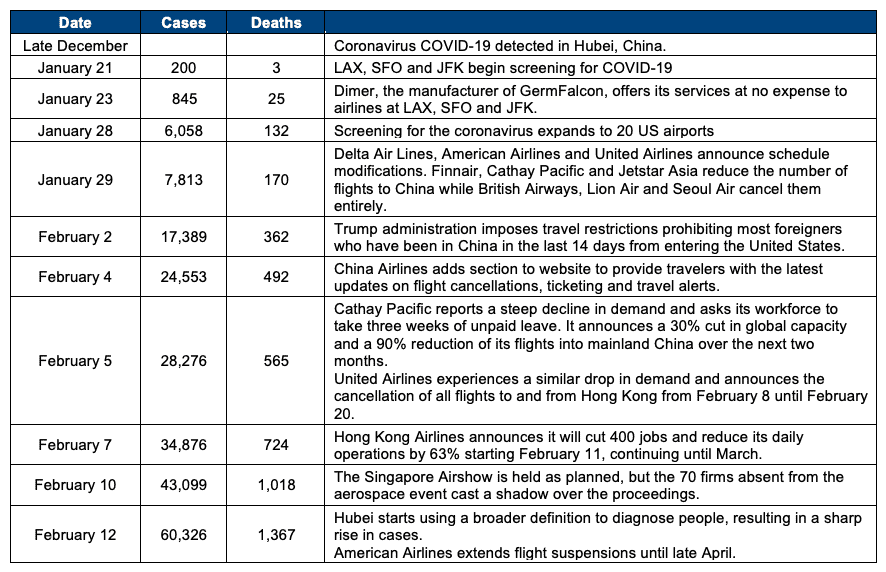Coronavirus: APEX Encourages Normal Air Travel With Added Vigilance
Share

Since late 2019, the novel coronavirus, named COVID-19 by the World Health Organization (WHO) has infected over 60,000 people and claimed over 1,350 lives. Global efforts to contain the illness press forward, and the fatality rate outside of the Chinese province of Hubei is less than a fraction of a percent.
Understanding the profound impact of such a crisis on the global aviation industry, APEX issued a statement yesterday recommending that air travel continue as normal, except for in high-risk areas, as indicated by the WHO, governmental authorities and the Civil Aviation Administration of China (CAAC).
APEX’s Asia office in Beijing has been particularly sensitive to the development of the outbreak, and the association is actively supporting member airlines and suppliers upon request. In mid-January, APEX facilitated a no-cost airline deployment of a next-generation virus sterilization robot for aircraft via APEX member GermFalcon at LAX.

APEX CEO Dr. Joe Leader emphasized that airline and governmental response to the disease has been effective in keeping worldwide flights safe overall – there has yet to be a confirmed case of airline transmission of the virus. “[APEX member] airlines worldwide are very customer-centric in response to validated medical issues,” he said. “Given heightened sensitivity, we encourage airline customers not to travel by air with cold or flu-like conditions at this time.”
All air travel stakeholders must continue doing their part to maintain the high standard of safety in the air. WHO encourages all travelers to wash their hands frequently, use alcohol-based sanitizer, cough or sneeze into the crook of their elbow and avoiding exposure to anyone who may have been infected with the coronavirus.
APEX implores travelers have visited highly affected areas to actively self-identify for coordinated government supervised travel. Airlines should also follow WHO guidance and protocol, like that from the Centers for Disease Control (CDC), in assessing travelers arriving from China who present COVID-19 symptoms. Airlines should also follow infectious control guidelines for cabin crew.
On high-risk Asian routes, airlines are taking necessary measures to protect their passengers and crew, including implementing advanced post-flight sterilization techniques and conforming to enhanced WHO guidelines including protective mask protocols.


